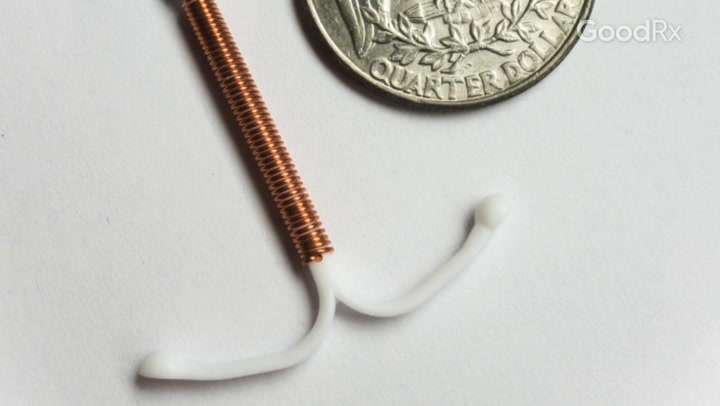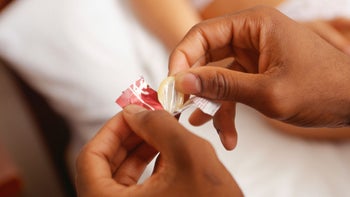
Is Anal Sex Safe? Here’s What You Need to Know (but May Not Want to Ask)
Key takeaways:
Anal sex is generally safe, especially when you use condoms and lubricant.
Anal sex can increase your risk for sexually transmitted infections, especially HIV.
Certain types of anal sex may increase the risk of anal leakage in men who have sex with men. But more research is needed to say for sure.
Table of contents

Chances are high you’ve heard about — or tried — anal sex. It’s pretty common in the U.S. Over 1 in every 3 adults (both men and women) report having anal sex at least once in their life.
But whether or not you’ve tried it, you may be wondering if anal sex is safe. After all, even though your butt is a sensitive (and even pleasurable) area, it’s not technically designed for sex.
Here’s the short answer: Yes, anal sex is generally considered safe.
But just like other types of sex, anal sex does come with some risks, including sexually transmitted infections (STIs), anal cancer, and anal fissures. There’s also some evidence that men who have certain types of receptive anal sex (meaning a penis or other object is inserted into their bottom) may be more likely to have problems with anal leakage later on.
Here’s the good news: There are things you can do to make anal sex as safe as possible, like using lube and condoms consistently — and communicating well with your partner(s).
And the more you know about anal sex, the more you can make decisions about your sex life that are right for you.
Read more like this
Explore these related articles, suggested for readers like you.
What is anal sex?
Anal sex is any sexual activity that involves your anus. Your anus is the opening in your bottom where your digestive tract ends. Many people find it feels good to stimulate or penetrate this area.
Types of anal sex include:
Penetration or stimulation with a penis
Penetration or stimulation with a finger, sex toy, or other object
Use of your mouth or tongue on another person’s anus
Masturbation by touching or penetrating your own anus
Some people also talk about being the “top” or the “bottom” when it comes to anal sex:
Top: This usually means you’re stimulating or penetrating another person’s anus.
Bottom: This usually means another person is stimulating or penetrating you. This can feel good because your anus is a sensitive area. If penetration is deep enough, it can also stimulate your internal clitoris or prostate.
Need more details? If you’re new to anal sex, check out these video tutorials from the New Zealand AIDS Foundation (link includes explicit sexual content).
Are there health risks associated with anal sex?
Anal sex is generally considered safe, especially when you use condoms and lube correctly.
But remember: There’s no such thing as 100% safe sex. Just like other types of sex, anal sex can affect your health. Let’s take a closer look at the risks involved in anal sex, as well as what you can do to make anal sex as safe as possible.
Can you get HIV from anal sex?
Yes. The biggest health risk with anal sex is HIV (human immunodeficiency virus). You’re more likely to spread — or get — HIV from receptive anal sex than from any other type of sex (like vaginal or oral). This is because the skin in your anus is somewhat thin, which can make it easier for viruses to enter your body.
Can anal sex cause cancer?
No, not on its own. But anal sex can increase your risk for anal cancer if you get HPV (human papillomavirus).
HPV is an STI. Certain types of HPV can cause cancer in your mouth, cervix, vagina, and anus. HPV is the number one cause of anal cancer.
But keep in mind: In 9 out of 10 people, HPV will go away on its own within 2 years without ever causing health problems. And there’s also a vaccine that can protect you against some types of HPV.
Can you get an STI from anal sex?
Yes. Just like any type of sex, anal sex can spread STIs. This can lead to an infection in your butt, genitals, mouth, or your skin.
In fact, anal sex has a higher risk of spreading some STIs than other types of sex. This is because the skin in and around your anus is thin and delicate, so it can more easily get infected.
STIs that can cause an infection in your bottom include:
Condoms are the best way to protect yourself.
Can anal sex cause anal leakage?
It’s not clear. Anal leakage (incontinence) is when stool, gas, or liquid accidentally comes out of your bottom. Pregnancy and digestive disorders can cause anal leakage. But more research is needed before experts can say for sure whether anal sex may also cause it.
That said, there’s some recent evidence that men who have sex with men (MSM) can have anal leakage. In a survey of about 22,000 MSM, 8% who had receptive anal sex in the past reported anal leakage within the previous month. The people who had anal leakage were more likely to be:
Slightly older
Unemployed
Retired
Rates of anal leakage were also higher in men who:
Had receptive anal sex more than once a week
Used drugs as part of their sex life (“chemsex”)
Engaged in anal fisting
MSM who had “simple” receptive anal sex once a week (without drugs or fisting) didn’t have an increased risk of anal leakage.
Another research study from 2016 also found that both men and women who had anal sex had higher rates of anal leakage. But the researchers couldn’t say for sure whether having anal sex actually caused anal leakage — or if it was just a coincidence.
Other potential risks of anal sex
Irritated hemorrhoids: Hemorrhoids are swollen blood vessels in your anus. Anal sex doesn’t cause new hemorrhoids, but it can make them feel worse if you already have them. This can also make anal sex more painful.
Skin tearing: Anal sex can cause anal fissures. These are tears in the skin in your anus and rectum. They’re often small and heal on their own. But others can be deeper or get infected. The best way to prevent them during anal sex is to use lube and to go slow.
Rectal prolapse: This is when part of your intestine turns inside out and slides out through your anus. There isn’t any evidence that anal sex does, or does not, cause rectal prolapse. It’s not clear what causes rectal prolapse, but it’s more common in women, older adults, and people with chronic constipation or diarrhea. If anal sex does cause prolapse, the risk is probably very small.
How to prepare for anal sex
As with all types of sex, you can take steps to make anal sex as safe and enjoyable as possible. Educating yourself is one of the best things you can do to prepare.
Here are some other tips that can help you get ready for anal sex:
Have a condom ready. Using a condom or other barrier can protect you and your partner from STIs — including HIV. There’s even a brand of condom that’s now FDA authorized for anal sex.
Bring lots of lube. Your anus can’t naturally lubricate itself, so you’ll always need lube to have anal sex. Lube can make penetration easier and more pleasurable. And it reduces the chance of injury.
Use the right type of lube. Choose a plain, water-based or silicone-based lube. Massage oils, or oil-based lubricants, aren’t a good choice because they can damage condoms. And avoid numbing lubricants because they can make it harder for you and your partner to be aware of what feels good — and what hurts.
Communicate with your partner — both before and during sex. Before having sex, talk with your partner about whether they may have an STI, especially HIV. Get tested if needed. And during sex, check in with your partner regularly. If you’re feeling uncomfortable — or experiencing pain — think about taking things a little easier. With anal sex, it’s always a good idea to go slow and pay attention to your body.
Before you have sex, get vaccinated for HPV. The HPV vaccine can protect you from getting HPV-related anal cancer in the future.
Practice good hygiene when changing to a new activity. If you’re having anal sex and want to switch to vaginal sex, take a minute to put on a fresh condom. You should also wash whatever body parts or objects you were using — like your penis, hands, or any sex toys.
Do you need to douche or use an enema before anal sex?
No. It’s totally normal — and safe — to run into a little poop during anal sex. Just make sure to wash up with soap and water afterward.
That said, some people do like to rinse out their rectum before having anal sex, either with an anal douche or enema. These are both ways to clean out poop from inside your body.
Douching or using an enema is a personal choice. If you use one of these options, here are a couple tips:
Douching and enemas can sometimes irritate your skin. If you douche or use an enema, do it 1 to 2 hours before having sex, so there’s time for any irritation to go away.
Do not douche or use an enema if you have any sores, cuts, or inflamed hemorrhoids in your anal area.
Only use a douche or enema for a maximum of 2 or 3 times a week.
Does anal sex feel good?
It’s hard to say. Sexual pleasure is different from person to person. For some people, anal sex feels good. For other people, it doesn’t. And for some people, anal sex even feels bad or painful.
When it comes to sex — including anal sex — what really matters is what feels good to you and to your consenting partner(s).
Can you get pregnant from anal sex?
No. Anal sex can’t directly cause pregnancy. There’s no connection between your anus and rectum and your reproductive system.
But keep in mind: If a person ejaculates during anal sex, the semen can sometimes leak toward their partner’s vagina. Though it’s rare, this can lead to pregnancy. Using a condom can help contain semen and prevent pregnancy.
Are there side effects from anal sex?
Yes. If you have receptive anal sex, your bottom may feel a little sore afterward. You may also notice a bit of bright red blood when wiping after using the bathroom. Both of these things are normal and should stop in 1 to 2 days.
Here are some tips to try if you’re sore or have any bleeding:
Take a warm bath with Epsom salts. This is often called a “sitz bath.”
Take some ibuprofen (Advil, Motrin) or naproxen (Aleve) to help with inflammation.
Use over-the-counter lidocaine cream to temporarily help with pain or irritation.
Use a stool softener, like Metamucil, to make bowel movements easy and soft.
And most importantly: Give yourself time to heal. It’s a good idea to wait to have anal sex again until your side effects are gone and you’re feeling back to normal.
When to see a doctor after having anal sex
See a healthcare provider if you have bleeding, swelling, or pain that lasts for more than 1 to 2 days. This is especially important if your symptoms are getting worse or if you have a fever.
Ongoing anal pain can be a sign that you have one of the following:
Hemorrhoid with a blood clot
Large or infected anal fissure
Anal abscess
STI
Fungal infection
Anal cancer
And if you’re sexually active, be sure to keep up with your regular STI testing — including rectal testing if you have anal sex.
The bottom line
Anal sex is generally considered safe. But, like all types of sex, anal sex can put you at risk for STIs — especially HIV.
Taking steps to practice safe anal sex can protect you from STIs and from other health risks that come from being sexually active. This means using condoms and lube every time you have anal sex, communicating with your partner, and getting tested regularly for STIs.
Why trust our experts?


References
American Cancer Society. (2020). Risk factors for anal cancer.
American Society of Colon and Rectal Surgeons. (n.d.). Anal pain.
Anal Cancer Foundation. (n.d.). What is the HPV vaccine?
Assi, R., et al. (2014). Sexually transmitted infections of the anus and rectum. World Journal of Gastroenterology.
Box, B. (2020). Rear perfection: How to care for your bum after anal intercourse. TheBody.
Burnett Foundation Aotearoa. (n.d.). How to have anal sex (R18).
Centers for Disease Control and Prevention. (2021). Human papillomavirus (HPV).
Centers for Disease Control and Prevention. (2021). Which STD tests should I get?
Centers for Disease Control and Prevention. (2022). Genital HPV infection — basic fact sheet.
Centers for Disease Control and Prevention. (2022). HIV.
Copen, C. E., et al. (2016). Sexual behavior, sexual attraction, and sexual orientation among adults aged 18-44 in the United States: Data from the 2011-2013 national survey of family growth. National Health Statistics Reports.
HIV.gov. (2023). Preventing sexual transmission of HIV.
National Cancer Institute. (n.d.). Anus.
National Health Service. (2022). Does anal sex have any health risks?
Planned Parenthood. (2011). Can a girl get pregnant from anal sex?
Planned Parenthood. (2011). What’s anal sex? What are the risks of it?
Planned Parenthood. (2020). Can anal sex have any long term effects on my body?
Planned Parenthood. (2023). Do you have to use an enema or anal douche before you have anal sex?





























